QUT MNG81001 Virtual Team Management Report: Assessment 2
VerifiedAdded on 2023/06/08
|7
|267
|429
Report
AI Summary
This report examines the concept of virtual team management, which has gained prominence due to advancements in technology and globalization. It defines virtual teams as geographically dispersed members connected through electronic communication. The report highlights the advantages of virtual teams, including access to a global talent pool, increased flexibility, and improved team interrelationships. It also acknowledges the challenges associated with managing virtual teams effectively. The conclusion emphasizes that virtual teams can be successful with proper management and leadership, offering cost-effectiveness and sustainability. References include key research on virtual team dynamics, and the report is based on a real-world scenario involving a marketing team spread across multiple time zones.
1 out of 7
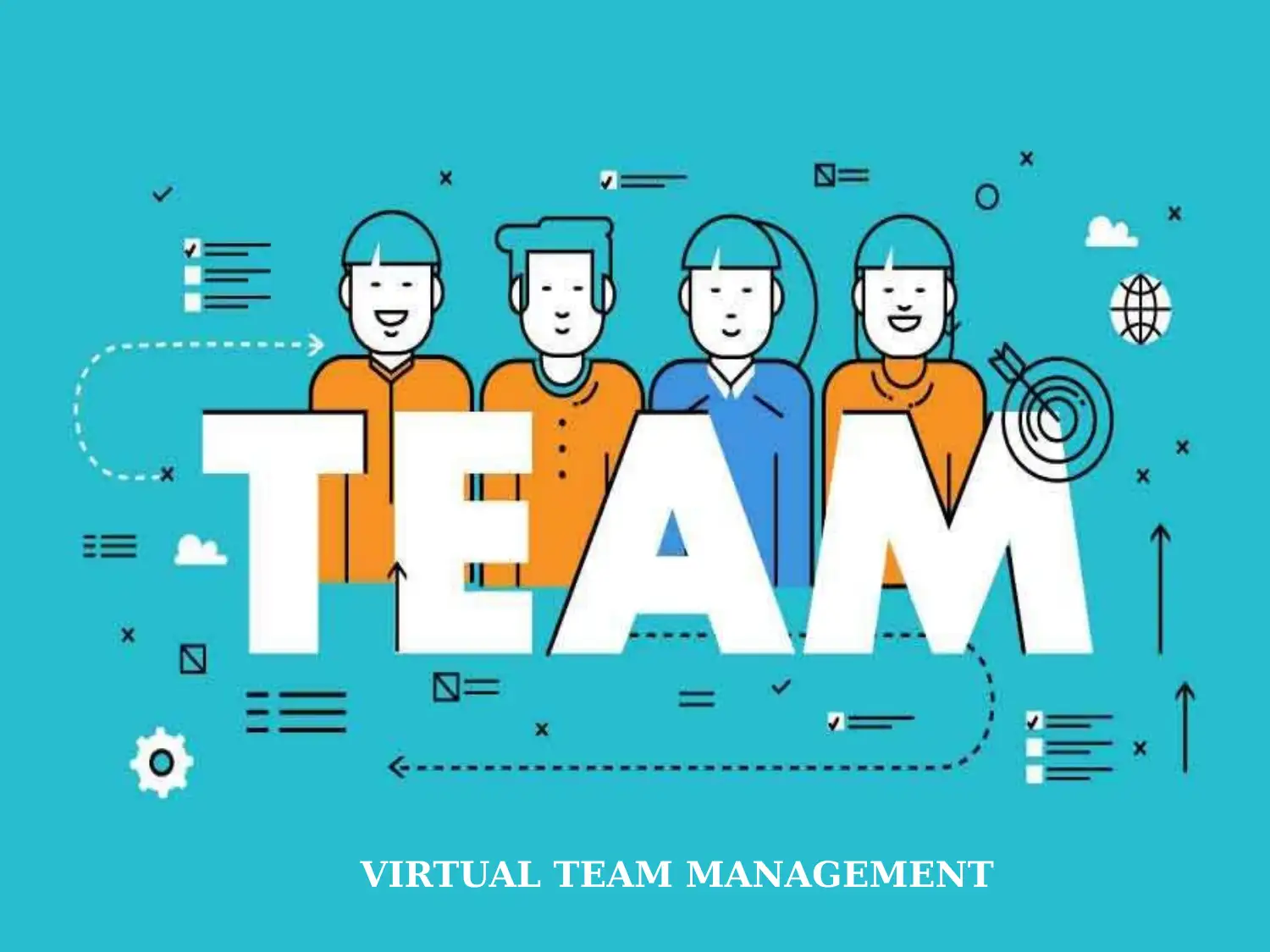
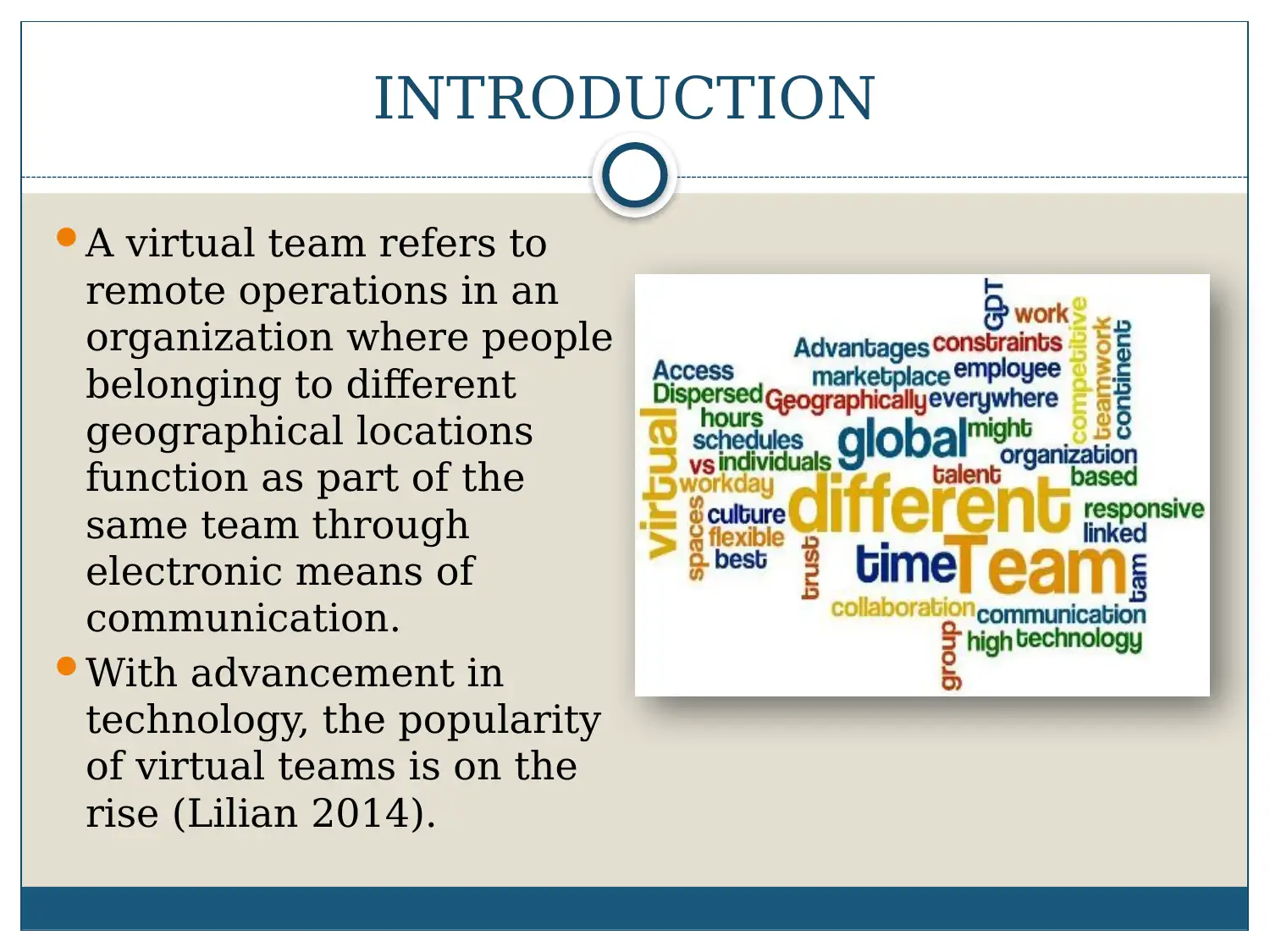
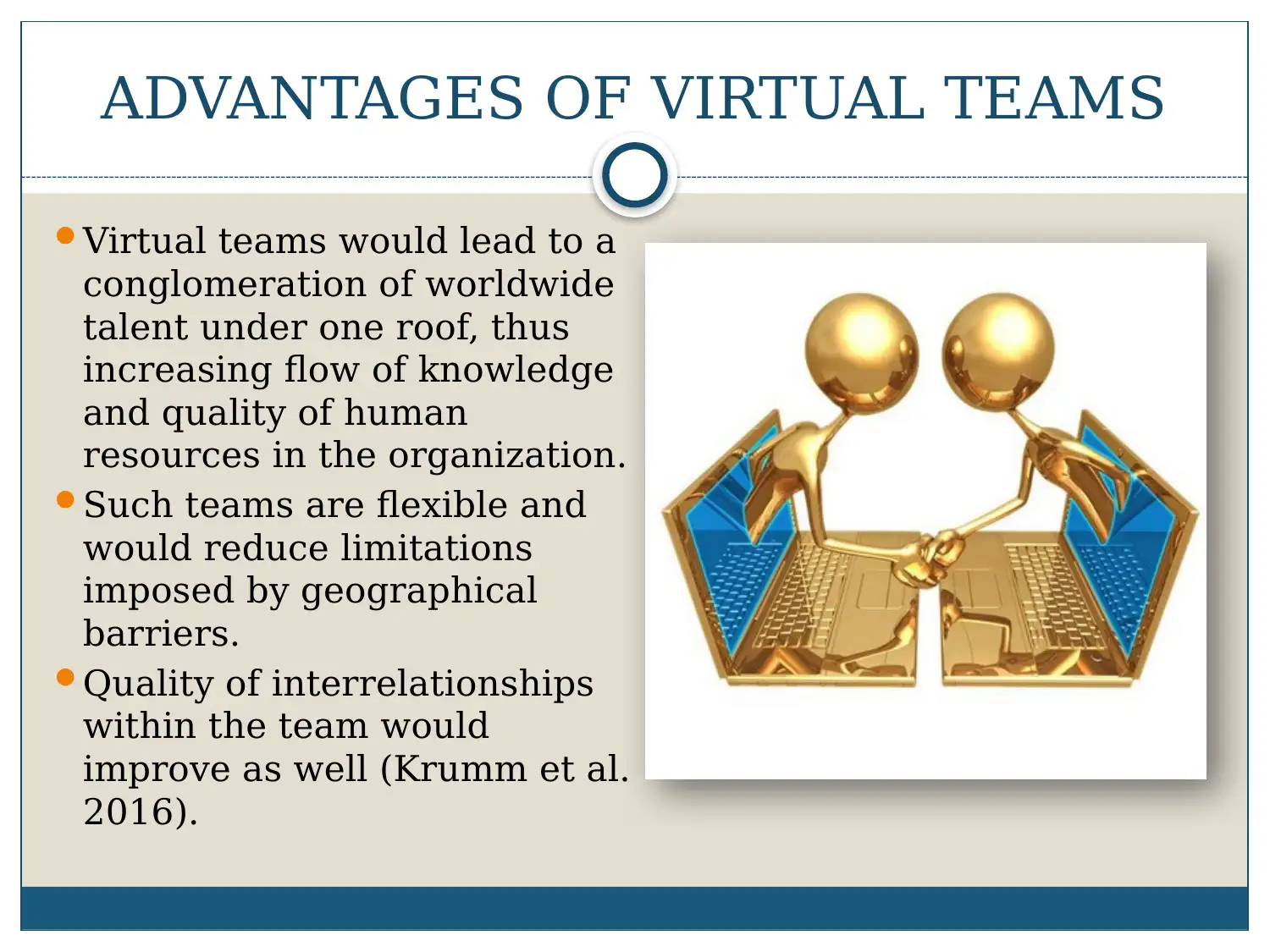


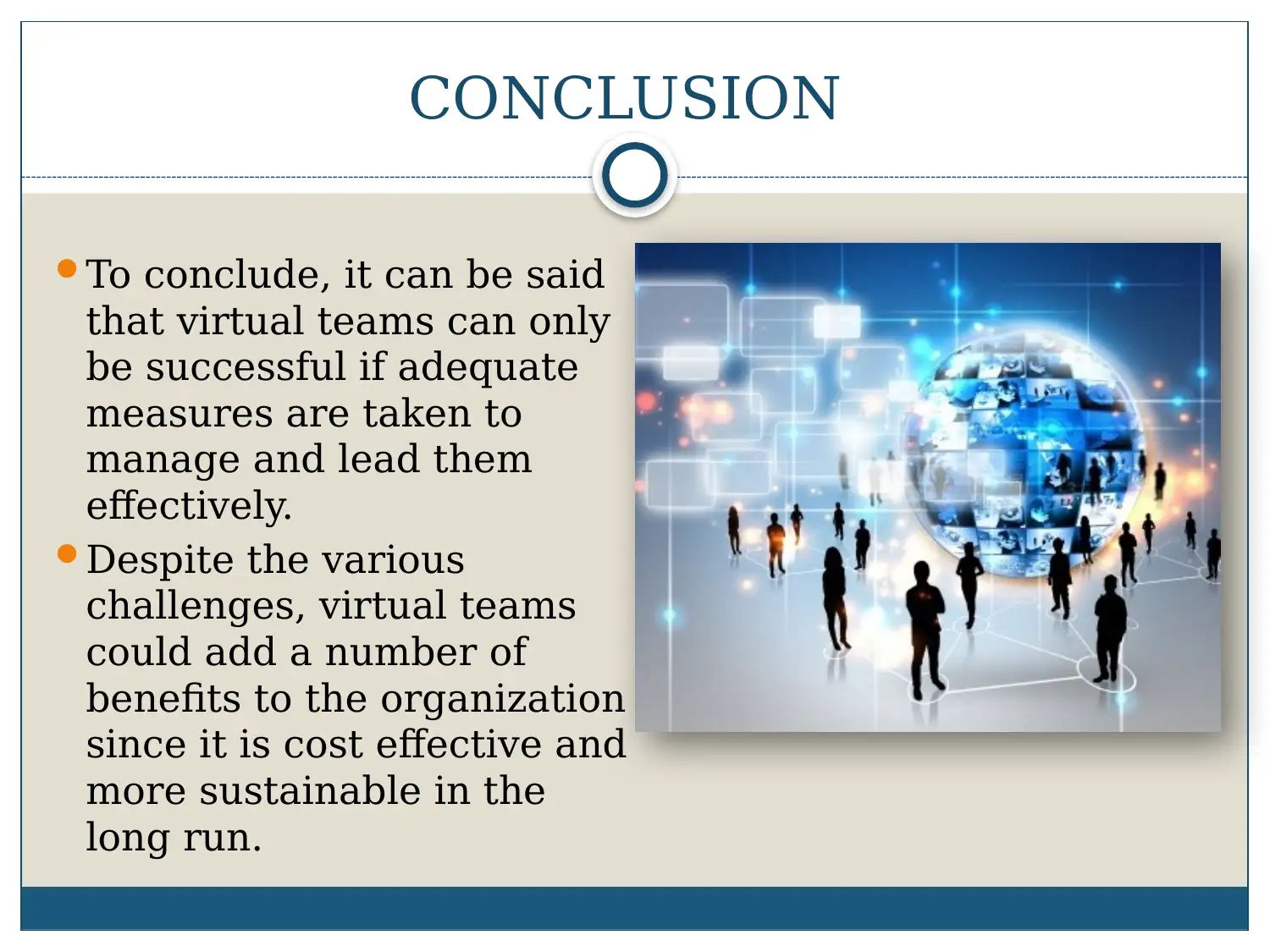
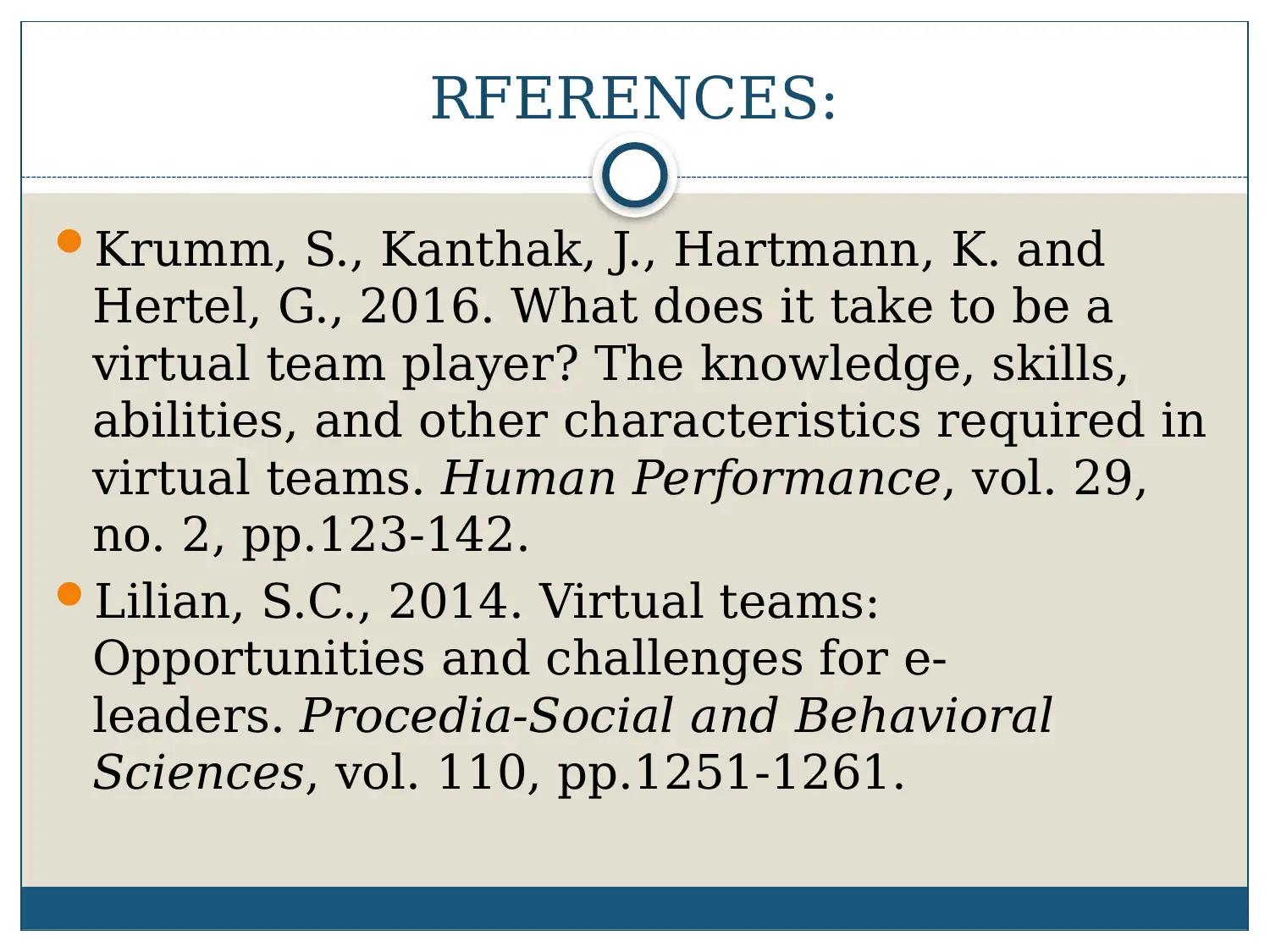






![[object Object]](/_next/static/media/star-bottom.7253800d.svg)